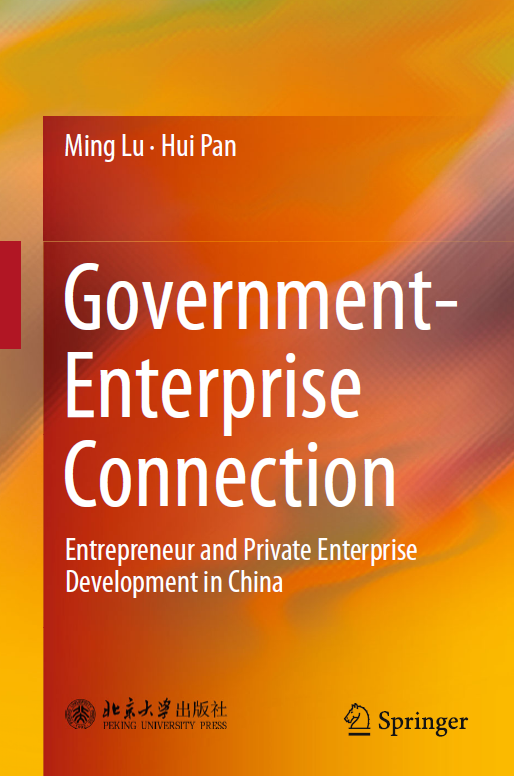Government-Enterprise Connection
Entrepreneur and Private Enterprise Development in China
Ming LU,
Hui PAN

If we think of China’s economy as a car, the government provides the road, employees constitute the parts that make up the car and the entrepreneur is the driver.
Undoubtedly, enterprise development most directly embodies the achievements of China’s economic rise over the past 30 years. China could not have become a leading global economic power without the development and expansion of enterprises, in particular private enterprises.1 To understand the relationship between government and enterprise (entrepreneur) is like understanding the relationship between a driver and the road when a car is traveling fast. This has become a core topic in studies of the development of Chinese enterprises.
We would not tell the story of Chinese enterprise through a journalist’s tales of magical experiences nor by enumeration of data, showing the rapid growth of enterprises. In our minds, the entrepreneur represents an important player in the modern market system, a group that has not been studied adequately by economists for a long time. The entrepreneurs we study are not the mythical rags to richen people. Compared to the authors who describe in rich language the history of enterprise development and the work of legendary entrepreneurs, we research the growth of Chinese entrepreneurs and the development of Chinese enterprises from a more subtle angle. What has been the role of entrepreneurs in the process of reform and opening-up and in enterprise development? What do they gain from enterprise development? What role do entrepreneurs play in the development of a market economy? Studies of the growth of Chinese enterprises and entrepreneurs will give us a very important profile of the Chinese market system.
Markets have never been perfect or equal. Market transactions are not anonymous and the price mechanism is never neutral. The non-anonymous nature of market transactions should be seen as an important embodiment of market imperfection, but it is ignored by traditional economic theories. Entrepreneurs operate many nonprice mechanisms in the market. Entrepreneurs with different political identities, political connections, and family backgrounds differ in their ability to obtain economic resources in the seemingly fair market mechanism, and consequently differences between entrepreneurs are transformed into differences in the development of enterprises. The interactive relationship between entrepreneurs and enterprises mirrors the dual character of the market mechanism. The market’s price mechanism is equitable when everyone can obtain resources based on the market price. On the other hand, the price mechanism is inequitable when everyone can obtain different resources at the same price or the same resource at different prices. A market system made up of government (government officials), enterprises, and entrepreneurs can be understood by examining the behavior of government officials and entrepreneurs, and the core of that behavior is the “government-enterprise connection”.2 What direction is the evolution of China’s market system taking? How market and nonmarket mechanisms jointly dominate resource allocation and human behavior is a global, cutting-edge topic which will be discussed against the general background of China’s economy and the development of private enterprise.
